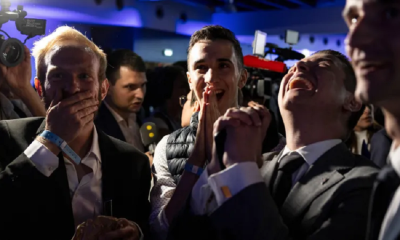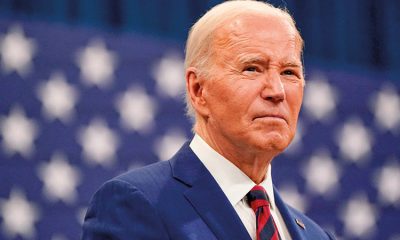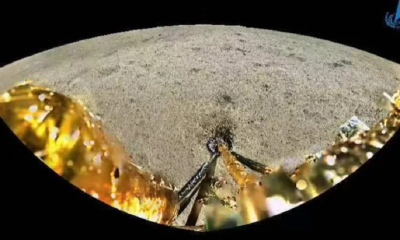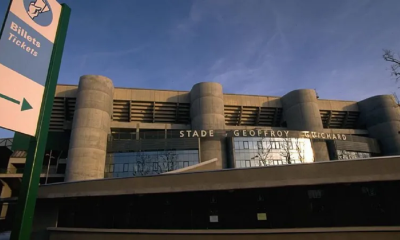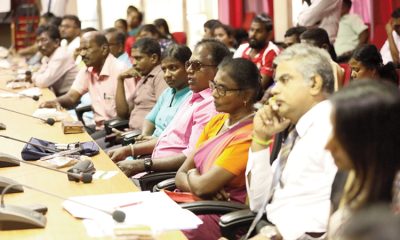Latest News
Ukraine, brandy and EVs top the agenda on Xi’s charm offensive
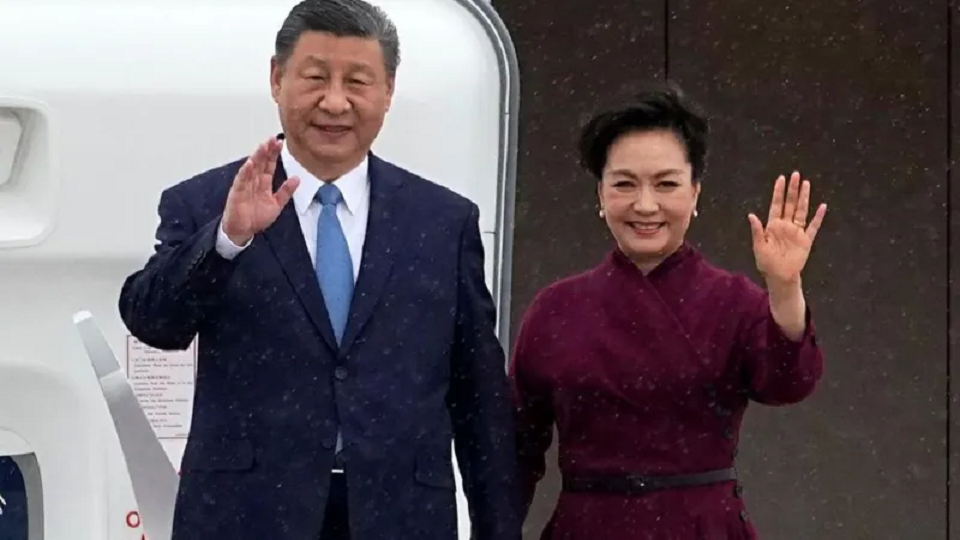
President Xi Jinping has hailed “new vistas” in China’s relationship with France on his first trip to Europe in five years – one that feels much like a charm offensive.
Mr Xi will be looking to avert the trade war that is looming with Brussels, driven by fears of cheap Chinese electric vehicles entering the European market.
The West also accuses China of helping Vladimir Putin wage war in Ukraine by supplying technology and equipment for the Russian military.
Both issues echo Washington’s words of warning to him in recent weeks, but it is not what Mr Xi wants his own people, or indeed those in France, to hear.
Instead, he is trying to win over the French and bolster China’s influence in Europe to counter any narrative coming from the United States.
He will also meet European Commission President Ursula von der Leyen during his visit to France. She has embraced a policy of “de-risking” from China, which includes tougher talk and cutting Europe’s dependence on Chinese imports and tech.
Later this week, he will make stops in Serbia and Hungary, allies of Moscow that have courted Chinese investment.
Mr Xi will spend most of Monday in talks with French President Emmanuel Macron.
Mr Macron will want to press Mr Xi on Beijing’s friendship with Moscow – and how far it is prepared to go to settle the war in Ukraine, especially as President Putin is scheduled to visit Beijing later this month.
The two will also discuss French brandy, China’s most imported type of spirit – Beijing is threatening to impose tariffs on it in response to the EU’s investigation into Chinese EVs.
That is an alarming prospect for French brandy makers who said last week that high tariffs would be a blow to the future of the industry.
Beijing is likely to be just as concerned about the results of the EU’s investigation into Chinese subsidies for EVs. Europe is a key market for China’s hugely successful electric car makers.
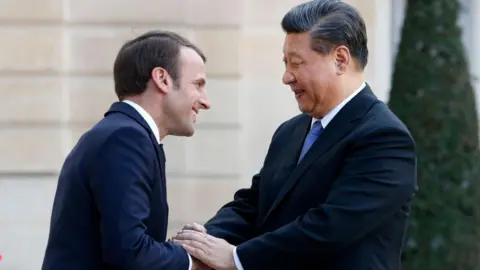
Mr Xi last visited Europe in 2019 (BBC)
So, winning over Mr Macron is key if Beijing is to, as China’s ambassador to France put it, “resist anti-China relations”.
To do that Mr Xi is highlighting the ties that bind Franco-Chinese relations together as the two celebrate 60 years of diplomatic relations.
The Chinese leader wrote an opinion column for the French newspaper Le Figaro and said he was coming to France with three messages: that Beijing was committed to opening up “new vistas” in its relationship with France; opening up “ever wider” to the world and to upholding world peace and stability.
Keeping with Beijing’s message, Chinese state media is also upbeat.
“China and France will light up their way forward with the torch of history, open a brighter future of China-France relations and make new contributions to world peace, stability and development,” said Xinhua.
It also highlighted President Xi’s love of French writers and artists and reported that his book has now been translated into French.
But there was also a word of caution: a Global Times editorial urged Europe to be independent and “especially not controlled by any third party”, a not-so-subtle reference to the US.
To put Paris in his corner, Mr Xi may see an opening with his French counterpart.
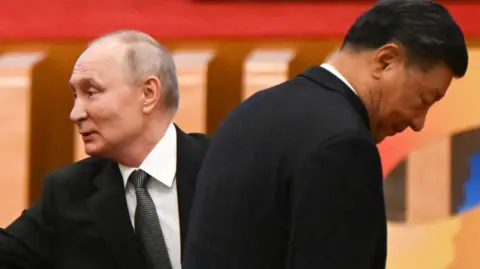
Beijing’s relationship with Moscow is a major source of contention (BBC)
President Macron has in the past pushed back on following US policies on China. He caused controversy during his trip to Beijing last year by saying Europe should not follow Washington “blindly” on Taiwan.
And while Mr Macron is one of the strongest backers of a raft of trade measures that have angered Beijing in recent weeks, he also wants Chinese companies to build their EV plants in France.
Even so, Mr Macron has proved he will be no pushover. Last week, as he was preparing to roll out the carpet for President Xi’s visit, he met Sikyong Penpa Tsering, the leader of the Tibetan government-in-exile, in Paris.
One of Mr Macron’s key priorities will also be to warn China of the danger of backing Russia in its invasion of Ukraine.
Like the United States, France and most of the EU want Beijing to stop supplying weapons components to Moscow.
“It is in our interest to get China to weigh in on the stability of the international order,” said Mr Macron in an interview with the Economist published on Thursday.
“We must, therefore, work with China to build peace,” he added.
President Xi has so far refused to do anything to stop Russia’s full-scale invasion of Ukraine.
In his Le Figaro opinion column he wrote that China “understands the repercussions of the Ukraine crisis on the people of Europe” and emphasised that Beijing is not “a party to or a participant in it”, adding that “China has been playing a constructive role in striving for peaceful settlement of the crisis”.
Whatever the outcomes of his visit to France, President Xi‘s visits to Hungary and Serbia will prove that China still has allies in the eastern corner of Europe.
(BBC)
Latest News
SCG curator ‘really happy’ with pitch for final Ashes Test
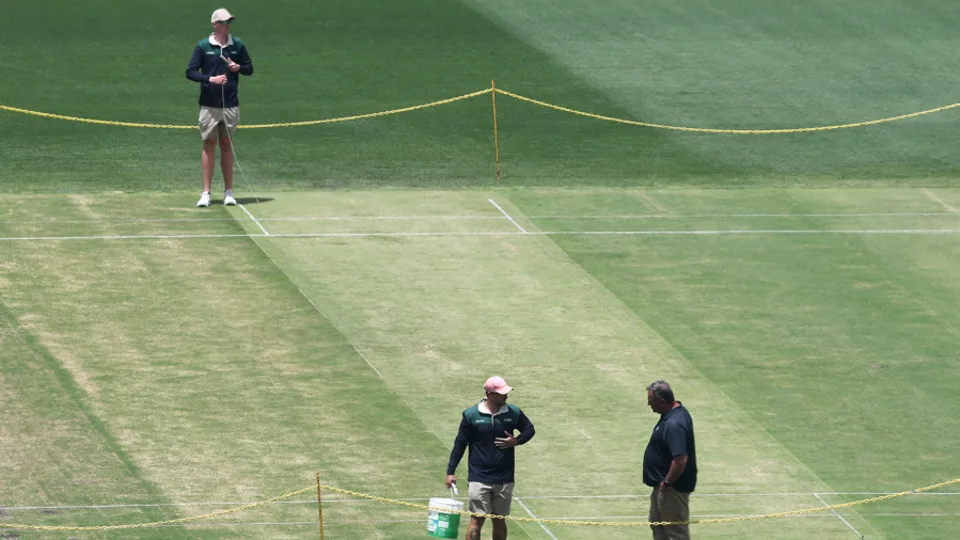
Todd Murphy is firming to play his first home Test, after the SCG’s head curator declared the pitch’s green covering would be near-irrelevant come day one.
With administrators still on edge after last week’s two day debacle in Melbourne, an extremely green SCG surface raised eyebrows in Sydney on Thursday.
But chief curator Adam Lewis insisted on Friday that should not be a concern, and he was hopeful Sydney would extend into a fifth day.
“You want to see green tinge three days out,” Lewis said. “If you’re not seeing any live grass three days out, then that’s when it’s a worry, … I’m really comfortable with where we’re sitting.
“We had a little bit of sun this morning. They’re saying a bit more sun tomorrow. That will take the greenness out of the pitch. We’re really happy with the pitches at the moment. We’re looking good.”
Lewis admitted he felt for MCG counterpart Matt Page last week, but said he felt no external pressure to ensure the fifth Test in Sydney went the distance.
It’s estimated that Cricket Australia (CA) has lost in the vicinity of AUD15 million in profits this summer, with the opening Test in Perth also finishing inside two days.
Even Prime Minister Anthony Albanese joked at a function with teams on Thursday night that they had to ensure the game went to day three, in order to support the McGrath Foundation fundraiser.
One of the hardest grounds in the world to bowl on between 2014 and 2023, last year’s SCG Test was over in just two-and-a-half days.
Lewis said that his ground staff would go with 6mm of grass this year compared to 7mm last season, while also reducing its density. That in itself generally acts to flatten out the wicket and produce less movement, while also inviting the chance of spin late in the match.
“We just thought … we could thin our density out a little bit,” Lewis said. “That’s what we’ve done this year. We’ve practised that in the Shield matches and we’ve received very good marks.”
CA CEO Todd Greenberg said he too was confident the SCG Test would last the distance.
“I’ve had more phone calls and conversations about wickets and millimetres of grass than I thought I’d ever have,” Greenberg said. “But I’m hopeful and confident we will have a long and productive Test match here.”
All of which should spell good news for Murphy. Australia’s coaching staff had a prolonged conversation around the pitch on Friday morning, after leaving Murphy out and going with four quicks at the MCG.
Murphy then spent most of Friday’s training session bowling to Australia’s top order, while Alex Carey also had an extended run keeping to him.
With seven Tests to his name overseas, Murphy would be expected to come in for Jhye Richardson if he does play in Sydney.
England have promised to take the attack to Murphy, who played two Tests during the 2023 Ashes were he conceded 4.72 an over.
“Whoever plays, I think that’s the mantra of our team, is to try and put pressure on people,” opener Zak Crawley, said. “Todd’s a very good bowler, but I can envisage us trying to put some pressure on him, like we would all their bowlers.
That’s going to come with some risks, and if it’s turning it’s definitely going to be a threat. But I think we’ll try and put pressure on all their bowlers.”
The other question for Australia will be whether Cameron Green remains in the side, after Beau Webster was spotted fielding in the gully during slips training on Friday. Green has averaged 18.66 with the bat in this series. The SCG was the scene of Webster’s debut a year ago against India.
[Cricinfo]
Latest News
Palestine was the deadliest place to be a journalist in 2025: Media union

Palestine was the deadliest place to work as a journalist in 2025, with the Middle East as a whole the most dangerous region for media professionals, according to a global journalist union.
The International Federation of Journalists (IFJ) said the region accounted for 74 deaths last year – more than half of the 128 journalists and media workers killed – in a new report released on Wednesday.
The Middle East was followed by Africa with 18 deaths, Asia Pacific (15), the Americas (11) and Europe (10), according to the report. The vast majority of those killed were men, but the list included 10 women.
“128 journalists killed in a single year is not just a statistic; it is a global crisis. These deaths are a brutal reminder that journalists are being targeted with impunity, simply for doing their job,” IFJ General Secretary Anthony Bellanger said.
Palestinian journalists were the biggest cohort of victims: 56 Palestinian media professionals were killed in 2025. Yemen followed, with 13 deaths, Ukraine, with eight, and Sudan, with six, according to the IFJ.
The Paris-based media union cited Israel’s killing of Al Jazeera journalist Anas al-Sharif as the most “emblematic” of the 56 journalists murdered in Palestine last year covering Israel’s genocidal war on Gaza. Al-Sharif, 28, was killed on August 10 alongside several colleagues when Israeli forces struck a media tent outside Gaza City’s al-Shifa Hospital.
The attack also killed Al Jazeera correspondent Mohammed Qreiqeh, Al Jazeera camera operators Ibrahim Zaher and Mohammed Noufal, freelance camera operator Momen Aliwa and freelance journalist Mohammed al-Khalidi.
IFJ also cited an Israeli strike in early September on a Yemeni newspaper office as “one of the worst-ever attacks on a media office”. Thirteen journalists and media workers at the Houthi-affiliated “26 September” newspaper were killed, along with more than 20 other people.
Another nine deaths were ruled as accidents, while others – including two journalists in Syria and two in Iran – were “targeted and killed” because of their work, IFJ said.
While the Middle East was the deadliest region for the third year in a row in 2025, the Asia Pacific accounted for the largest number of journalists and media workers behind bars. Most cases in 2025 were in China and Hong Kong, which together accounted for 143 journalists, followed by 49 in Myanmar and 37 in Vietnam.
Europe was another detention hotspot last year, accounting for 149 imprisoned journalists. IFJ attributed the figure, up 40 percent from a year earlier, to “intensified repression in Azerbaijan and Russia”.
[Aljazeera]
Latest News
Donald Trump pauses US tariff hike on furniture, cabinets for one year

United States President Donald Trump has said that he will delay the implementation of tariffs on upholstered furniture, kitchen cabinets and vanities for one year, amid growing concerns over cost-of-living issues.
Trump signed an order on Wednesday night, during the New Year’s Eve holiday, pausing a planned 50 percent tariff on cabinets and vanities and a 30 percent tariff on upholstered furniture.
But the order maintained the 25 percent tariff he put in place for those products in September.
The US president had previously described the furniture tariffs as a step to “bolster American industry and protect national security”.
Polls indicate that rising prices and the cost of living are major concerns for people in the US as the country approaches its 2026 midterm elections, scheduled for November.
Voters hold President Trump’s policies, and tariffs in particular, at least partly responsible for their economic woes. A Politico poll released in December found that 30 percent of respondents cited tariffs as the primary reason prices were high, and 32 percent said that Trump bears “full responsibility” for the state of the economy.
A majority of respondents cited the cost of living as a top issue facing the country, while 32 percent cited the state of the economy. Democratic politicians have sought to hammer Trump and his Republican Party on affordability concerns, which Trump has waved away as a “hoax” perpetuated by his political rivals.
The Italian foreign ministry said on Thursday that the US had also agreed to slash proposed import duties on pasta products from 13 companies.
Previously, the Trump administration had threatened the pasta companies with additional tariffs of 92 percent, in addition to import taxes on European Union products.
Italy’s foreign ministry said that the US Commerce Department had agreed to bring that rate down to 2.26 percent for La Molisana and 13.98 percent for Garofalo, two Italian food companies the administration had accused of undercutting other pasta producers through unfairly low prices.
The other companies will face a rate of 9.09 percent.
“The recalculation of the duties is a sign that US authorities recognise our companies’ constructive willingness to cooperate,” the foreign ministry said.
[Aljazeera]
-

 Sports5 days ago
Sports5 days agoGurusinha’s Boxing Day hundred celebrated in Melbourne
-

 News3 days ago
News3 days agoLeading the Nation’s Connectivity Recovery Amid Unprecedented Challenges
-

 Sports6 days ago
Sports6 days agoTime to close the Dickwella chapter
-

 Features4 days ago
Features4 days agoIt’s all over for Maxi Rozairo
-

 News6 days ago
News6 days agoEnvironmentalists warn Sri Lanka’s ecological safeguards are failing
-

 News4 days ago
News4 days agoDr. Bellana: “I was removed as NHSL Deputy Director for exposing Rs. 900 mn fraud”
-

 News3 days ago
News3 days agoDons on warpath over alleged undue interference in university governance
-
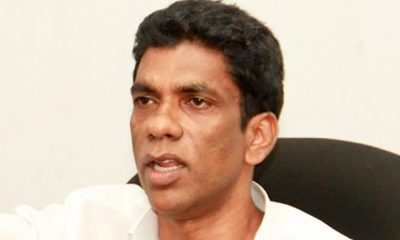
 Features6 days ago
Features6 days agoDigambaram draws a broad brush canvas of SL’s existing political situation




